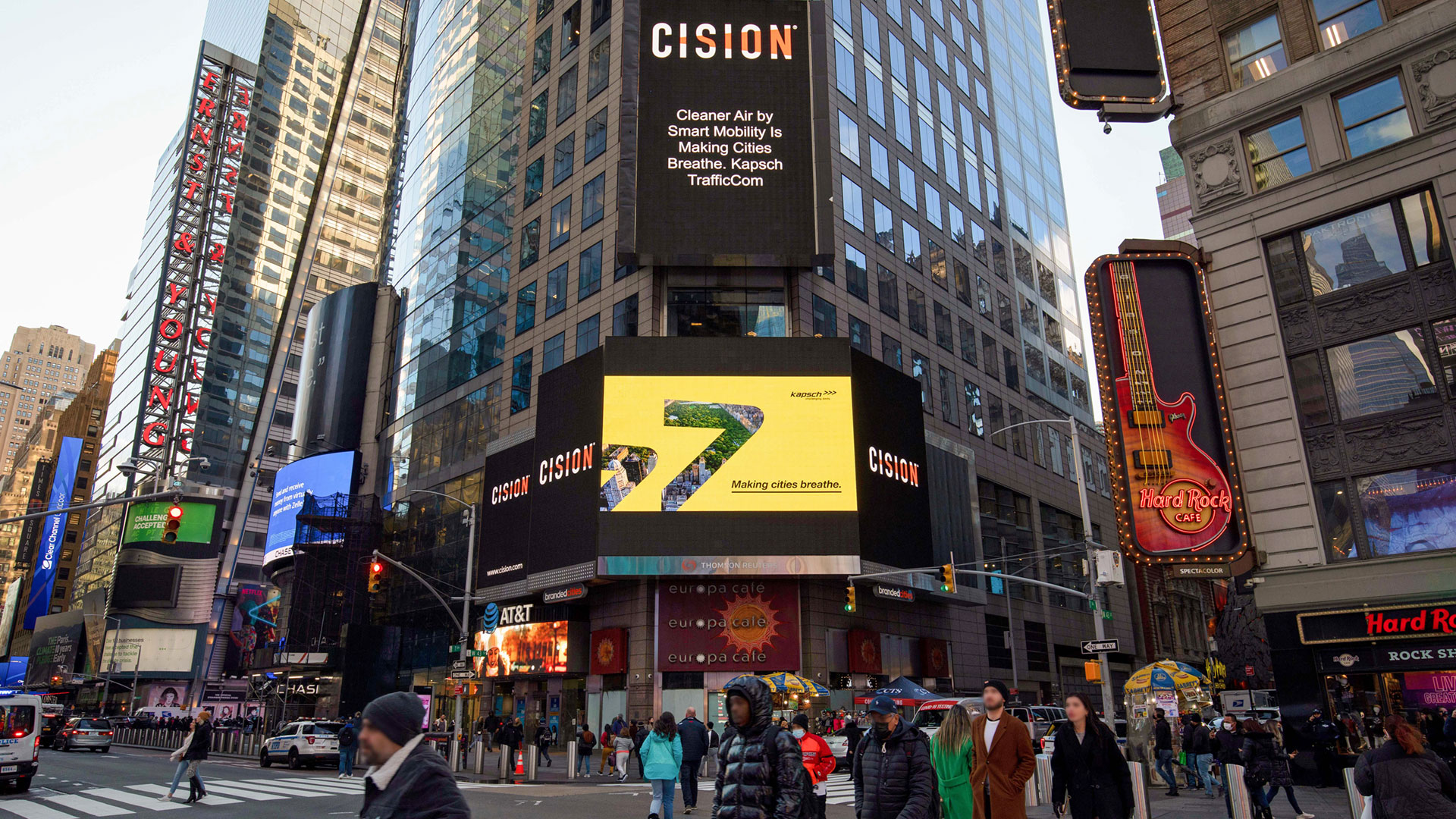- Press
- Press releases
- OPINION: Emissions targets need more …
OPINION: Emissions targets need more than double of COP26 efforts

Vienna, 24 November 2021 – The Glasgow Climate Pact is ambitious, but not enough. Commitments amount to 4.8 billion mt of CO2, while they need to fall by 12.5 billion mt in 2030 to get on track with a 2°C goal, according to the UN. For cities, the main drivers of emissions, digital traffic management is a valuable tool to reduce emissions while improving air quality. Cities like Austin or Madrid already take action and benefit from such measures today.
The recently adopted Glasgow Climate Pact is an ambitious attempt to set targets for reducing emissions – but most countries are way off track in terms of meeting them. In fact, in order to achieve a warming limit of 1.5°C, efforts to curb emissions would have to reach 27 billion mt CO2 by 2030.
In addition to being am major source of emissions that are damaging the environment, urban transport is also responsible for air pollution in cities, as none-fuel emissions like tire wear emissions and braking particulates pose a significant health danger to the city population.
Kapsch TrafficCom is making cities breathe again
“Today, more than 80% of cities worldwide struggle with air pollution,” explains Georg Kapsch, CEO of Kapsch TrafficCom. “The impact on the environment and public health cannot be denied. Promising to focus on electric vehicles in the future is not enough and will by far not resolve the situation – immediate actions are required. We have the tools available to change things for the better, empowering cities to address these issues head-on.”
By making use of the increased connectivity of infrastructure elements and traffic participants, joined-up traffic management can help cities to better guide traffic and reduce emissions-heavy congestion.
Joined-up traffic management systems improve traffic flow on busy roads, influence drivers to moderate and modify their road-usage behaviour, free up space on roads for greener transport alternatives and improve air quality. By connecting infrastructure and traffic participants, cities both improve the quality of life for their citizens as well as combat global warming.
The impact of traffic management
In Austin, Texas, the implementation of managed lanes has improved throughput leading to reduced traffic congestion and increased revenue generation for the city. In Madrid, Spain, Kapsch data shows that Integrated Mobility Management has reduced delays and stops by 19% and journey times by 5%.
Additionally, by employing joined-up traffic management measures like congestion charging, CO2 emissions in the British city of London could be reduced by up to 20%, according to an independent assessment.
Kapsch TrafficCom is working continuously to empower cities with tools to combat congestion and air pollution. That is why the company is launching its “Breathe”-campaign, emphasizing its efforts to give back cities the ability to breathe, from Times Square, New York to the streets of Buenos Aires, Melbourne and beyond.
Check out more information on our Breathe-Campaign here: www.kapsch.net/en/ktc/breathe
Kapsch TrafficCom is a globally renowned provider of transportation solutions for sustainable mobility. Innovative solutions in the application fields of tolling, tolling services, traffic management and demand management contribute to a healthy world without congestion.
Kapsch has brought projects to fruition in more than 50 countries around the globe. With one-stop solutions, the company covers the entire value chain of customers, from components to design and implementation to the operation of systems.
As part of the Kapsch Group and headquartered in Vienna, Kapsch TrafficCom has subsidiaries and branches in more than 25 countries. It has been listed in the Prime Market segment of the Vienna Stock Exchange since 2007 (ticker symbol: KTCG). In its 2020/21 financial year, around 4,660 employees generated revenues of about EUR 500 million.